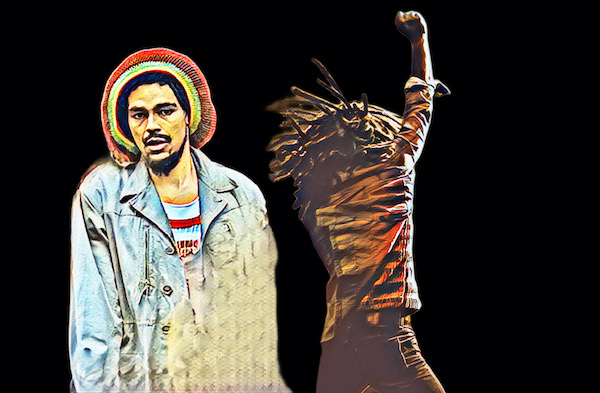When they announced that they would (finally) make a film about Bob Marley, focusing on the last years of his life and behind the scenes of the classic album Exodus, I celebrated. After all, Marley was the best-known reggae musician of all time, selling more than 75 million records, but he died of cancer, aged 42, in 1981. He suffered attacks, and racism and was still opposed to violence. However, the film Bob Marley: One Love missed the opportunity to bring dimension or even connection to the musician’s trajectory. Almost a lesson on how NOT to make a film.

There is a huge risk when the director and screenwriter are fans of the music and only use the soundtrack as a guide. Several biographies of singers go through this: it’s as if track by track were the common thread, trying to include all the hits to give some perspective on the song rather than the author. Add to this the strong tendency to whitewash, with the family signing the production, and defects are omitted or rushed, trying to get the audience involved with the music and ignoring the person.
Like many geniuses, Bob Marley was just a man, full of traumas, frustrations, and yes, failures. Director Reinaldo Marcus Green, who had already made King Richard (which won Will Smith the Oscar), at least got the casting choice right, paradoxically, amid a film that can only be called “bad”, Kingsley Ben-Adir is sensitive and perfect as Marley, and Lashana Lynch is also great as Rita Marley. But it is not enough.
Bob Marley: One Love focuses on the two years in which Marley lived in voluntary exile in the United Kingdom, between 1976 and 1978, as he was already a political voice in Jamaica and was frustrated in trying to hold a unity concert to put an end to the violence inflicted by two conflicting political leaders. He suffers an attack, discovers he has cancer, and returns to his country to finally give a legendary performance. Just like that, superficial and quick as I described.
In the meantime, he deals with the impact of never having known his father, maintaining an abusive and dependent relationship with Rita, cheating on her with countless women but expecting loyalty and unconditional forgiveness from his wife. For example, every romance with the 1976 Miss World, the Jamaican model Cindy Breakspeare, for whom he wrote Waiting in Vain and who is in Exodus, is nothing more than a frame in the film (literally) without any impact like what really happened at the wedding with Rita.

In an uninterrupted sequence of an hour and a half where Marley’s music interrupts us more than it involves us, we have no idea of the real perspective of his artistic talent, nor even of the political conflicts that led him into exile after suffering an attack.
The flashbacks are used in an even more confusing way, where we understand that he always suffered from the abandonment of his white father, was influenced by Rita in his spiritual choice, and was very attached to his band, but even with Kingsley trying hard to give some dimension to Bob Marley, it’s an uphill struggle for the actor. My suggestion? LISTEN, Bob Marley, and go through the movie. There is no conjunction of the force he was as an artist on screen. A shame.
Descubra mais sobre
Assine para receber nossas notícias mais recentes por e-mail.
